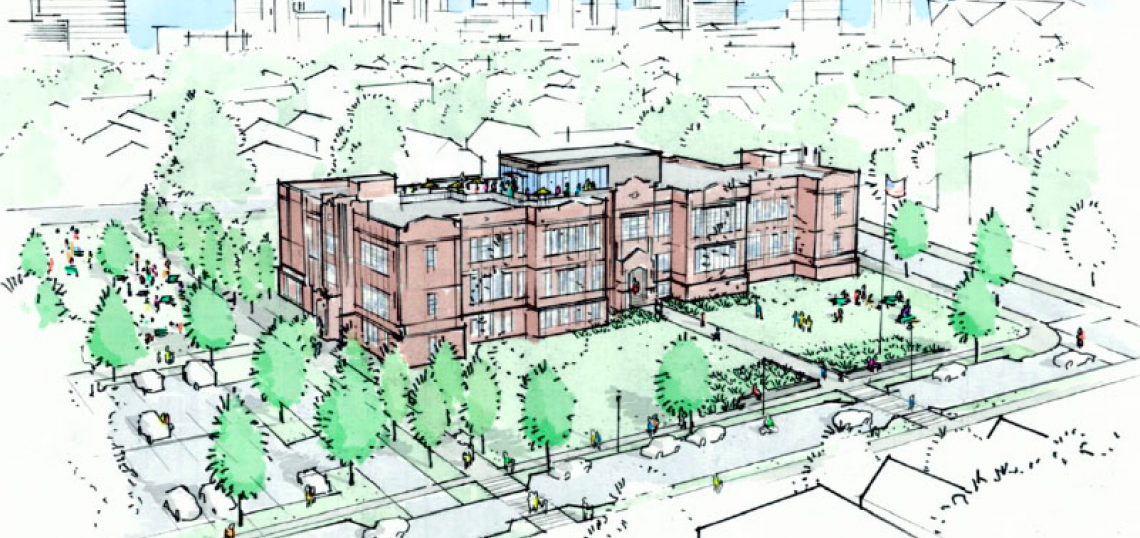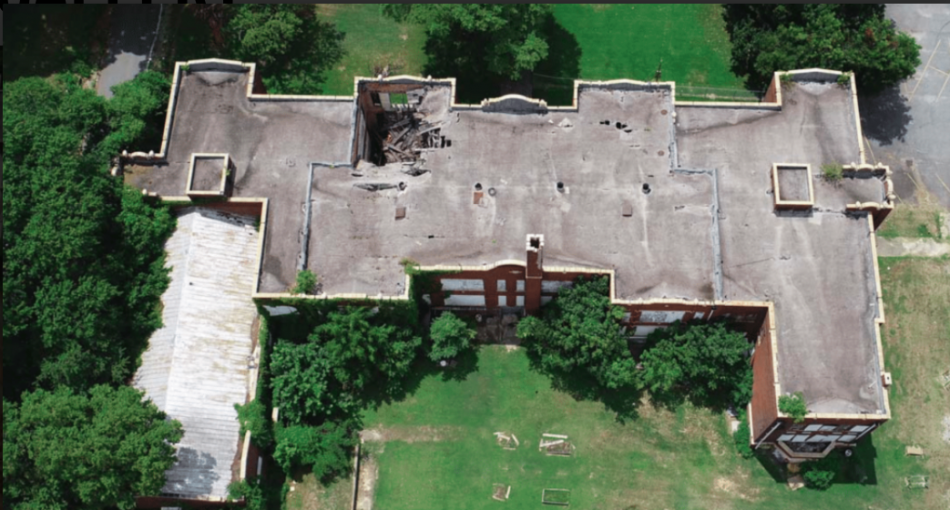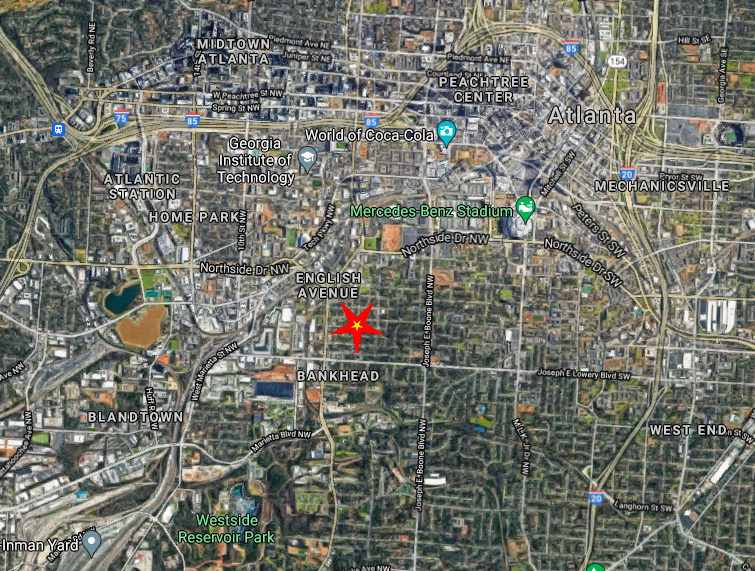Decades ago, one of the city’s oldest standing school buildings saw several notable Atlanta natives roaming its halls as youngsters, including former Georgia state Rep. “Able” Mable Thomas, the late Herman Cain, and legendary singer Gladys Knight, the “Empress of Soul.”
Built in 1910 with English Tudor Revival detailing, the three-level brick building continued to operate as English Avenue School until it was closed in 1995, subtracting an educational hub and gathering place for predominately Black neighborhoods on the Westside.
It’s been rotting ever since.
Over the 50,000-square-foot school’s original wood-framed section, the roof has mostly failed and partially opened to the elements, causing ceilings and floors to collapse. The façade is a puzzle of plywood and busted glass.
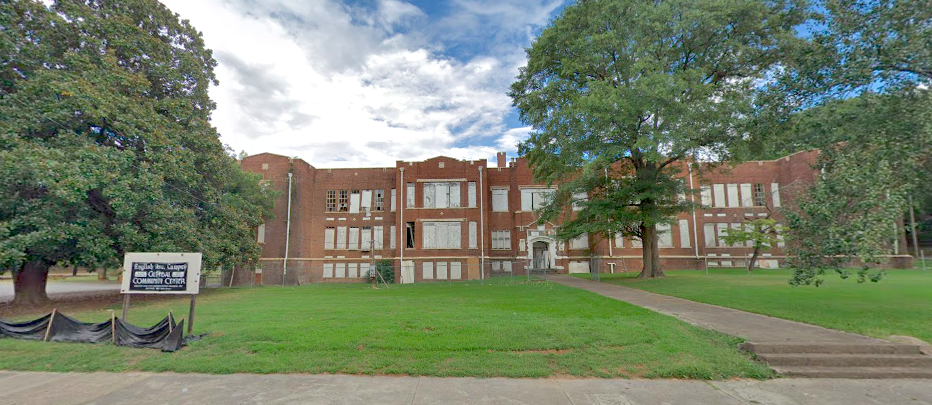 The circa-1910 English Avenue School in 2018. Its English Tudor Revival detailing remains intact. Google Maps
The circa-1910 English Avenue School in 2018. Its English Tudor Revival detailing remains intact. Google Maps
But according to Westside Development Partners, a group intent on spending more than $30 million to revive the school as a multifaceted community center, the building’s original, load-bearing masonry walls and wings built of concrete in 1923 are solid. (It withstood a racially motivated bombing during the civil rights movement in 1960, after all.)
Westside Development Partners envisions the school becoming a hub of workforce training, offices, and spaces for assembling in hopes of connecting underserved communities around English Avenue with job opportunities. On the roof would be another assembly space with what’s called an enclosed “elevator penthouse.”
Plans also call for hosting art shows, weddings, and other events.
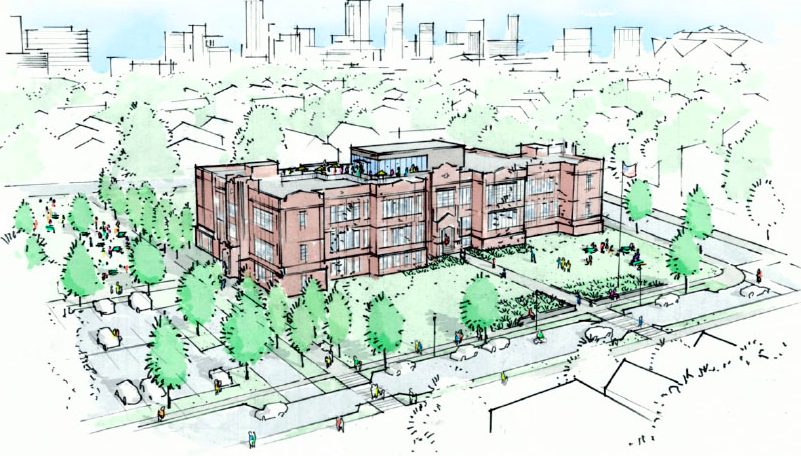 A rendering depicting the school revitalized as a community center, with an assembly space and "elevator penthouse" on the roof. Courtesy of Westside Development Partners
A rendering depicting the school revitalized as a community center, with an assembly space and "elevator penthouse" on the roof. Courtesy of Westside Development Partners
That vision got a boost last month when the Atlanta City Council voted 13-2 in favor of allowing the school's redevelopment and restoration, which would be funded with a historic tax credit program in partnership with various nonprofits, corporations, educational institutions, and other stakeholders.
But the process hasn’t been without turbulence. Long-invested partners and community members have aired concerns that their input hasn’t been counted and that staging events at the repurposed school could cause problems.
Thomas, the former state legislator, recently told the AJC she feels the Westside community has had no voice in deciding which direction the project will take. A nonprofit Thomas founded, the Greater Vine City Opportunities Program, bought the school in 2010 and has been raising money via grants and donations to save it since.
Thomas told the AJC she opposes the proposal that’s going forward, though she acknowledges the dilapidated school is an eyesore that needs mending.
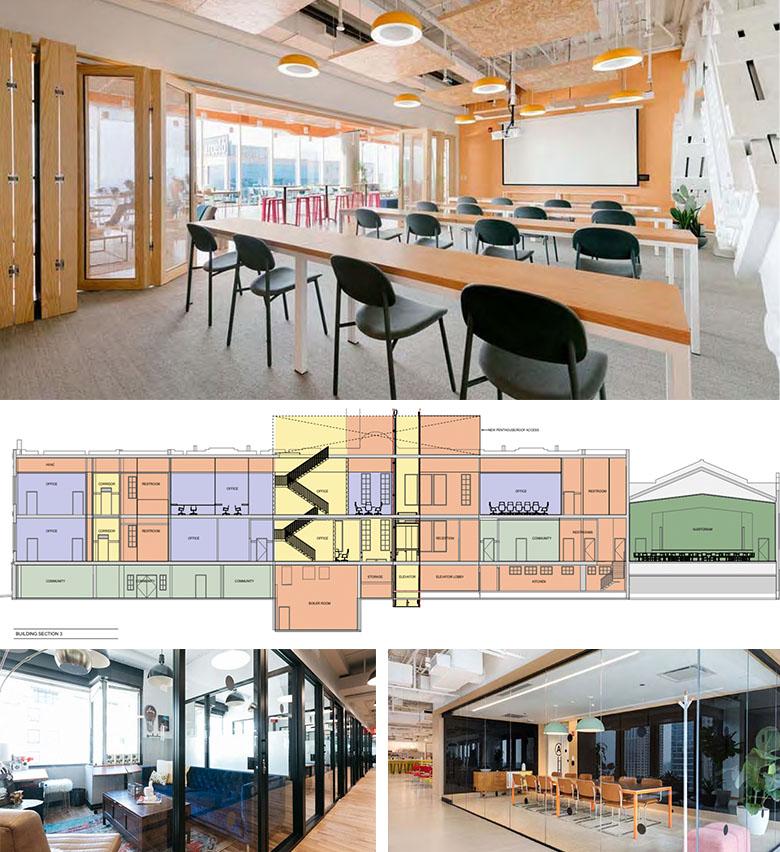 Examples of how English Avenue School interiors could look and function. Courtesy of Westside Development Partners
Examples of how English Avenue School interiors could look and function. Courtesy of Westside Development Partners
Some in the community have voiced concerns the events portion could morph into a nightclub. It could be better used, the argument goes, as affordable housing with possibly a daycare component.
Thomas’ GVCOP nonprofit has tried to get various redevelopment efforts off the ground in recent years, but none took off. It formed Westside Development Partners with developer The Optimal Company in 2017, which holds a majority stake.
Optimal’s CEO, Keven Patterson, didn’t respond to inquiries from Urbanize Atlanta this week. But he recently told the AJC he’s secured financing for the school project, which he expects to be an engine for Westside jobs creation and economic mobility. No events at the venue, per permitting stipulations, will be allowed to last past midnight on weekends.
The property covers about 3 acres off Donald Lee Hollowell Parkway, directly west of Georgia Tech. The city council's vote grants the project a permit to move forward, but no timeline for construction has been specified.
The school was added to the National Register of Historic Places last year.
• Bankhead townhome prices now flirting with—gulp—$700K (Urbanize Atlanta)





